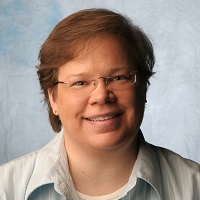Financial Advisers Share the Best Financial Advice They’ve Ever Received
Some of our favorite advisers take a walk down memory lane to share with readers the financial advice that’s made a big difference in their lives.


Profit and prosper with the best of Kiplinger's advice on investing, taxes, retirement, personal finance and much more. Delivered daily. Enter your email in the box and click Sign Me Up.
You are now subscribed
Your newsletter sign-up was successful
Want to add more newsletters?

Delivered daily
Kiplinger Today
Profit and prosper with the best of Kiplinger's advice on investing, taxes, retirement, personal finance and much more delivered daily. Smart money moves start here.

Sent five days a week
Kiplinger A Step Ahead
Get practical help to make better financial decisions in your everyday life, from spending to savings on top deals.

Delivered daily
Kiplinger Closing Bell
Get today's biggest financial and investing headlines delivered to your inbox every day the U.S. stock market is open.

Sent twice a week
Kiplinger Adviser Intel
Financial pros across the country share best practices and fresh tactics to preserve and grow your wealth.

Delivered weekly
Kiplinger Tax Tips
Trim your federal and state tax bills with practical tax-planning and tax-cutting strategies.

Sent twice a week
Kiplinger Retirement Tips
Your twice-a-week guide to planning and enjoying a financially secure and richly rewarding retirement

Sent bimonthly.
Kiplinger Adviser Angle
Insights for advisers, wealth managers and other financial professionals.

Sent twice a week
Kiplinger Investing Weekly
Your twice-a-week roundup of promising stocks, funds, companies and industries you should consider, ones you should avoid, and why.

Sent weekly for six weeks
Kiplinger Invest for Retirement
Your step-by-step six-part series on how to invest for retirement, from devising a successful strategy to exactly which investments to choose.
We at Kiplinger.com asked some financial advisers among our Building Wealth contributors and Kiplinger Advisor Collective members to share, in a few sentences, the best piece of financial advice they’ve been given over the years.
Their answers are inspired by books that made them stop and think and pointers their family members gave them at a young age. Maybe a nugget of wisdom here will change (or reinforce) the way you think about your finances. Perhaps you’ll even be inspired to check out some of the stellar financial advice these advisers offer Kiplinger.com readers on a regular basis (just click on their name to see their contributions and learn more about them).
Dad’s advice: Make yourself financially literate
From just $107.88 $24.99 for Kiplinger Personal Finance
Become a smarter, better informed investor. Subscribe from just $107.88 $24.99, plus get up to 4 Special Issues

Sign up for Kiplinger’s Free Newsletters
Profit and prosper with the best of expert advice on investing, taxes, retirement, personal finance and more - straight to your e-mail.
Profit and prosper with the best of expert advice - straight to your e-mail.
“Because most of us are not taught how to borrow, save, manage and invest our own money, or even to understand how our economy actually works, my dad urged me to take it upon myself to become financially literate on the basics. And it’s never too early (or too late) to start. That education has turned into a lifelong gift that continues to build confidence and a sense of comfort about how to navigate the financial world. It means creating a budget and developing the habit of living below my means in order to gradually build wealth. Asking for help from a professional can reinforce progress — but only when I feel I can collaborate with an expert. Whether it’s with a life partner, a professional or on my own, the goal is to be confident about what I expect to accomplish.” — Pam Krueger, a Building Wealth contributor
An investment adviser issues a challenge
“While working in the branch, the investment adviser at the credit union randomly asked me if I was contributing to the 401(k). I happily shared that I was at the employer match of 4% of my salary. She challenged me to contribute 10% because I ‘would never notice it was missing from my paycheck.’ That piece of advice has helped secure my financial future.” — Jason Vitug, a Kiplinger Advisor Collective member
Reading ‘The Big Payoff’ results in a big payoff
“In 2007, I read a book that changed my life and marriage forever! I read The Big Payoff: 8 Steps Couples Can Take to Make the Most of Their Money — And Live Richly Ever After (by Sharon Epperson). My husband and I had our first baby, who was only a year old, and we were struggling financially to manage all of the bills. The Big Payoff was instrumental in giving me the tools to talk to my husband about my money concerns and resulted in us making a commitment to have a ‘Money Date’ at least once a month! We continue to have our Money Dates, and I know that the reason our marriage is so strong and our financial position is secure is because we are always communicating about money. These dates ensure we are on the same page financially while working together as a team to save, invest and prepare for the future!” — Stacy Francis, a Building Wealth contributor
Automate savings and watch them grow
“The best piece of financial advice I received was early in my career from an old boss and was to automate my savings. It’s human nature to sometimes procrastinate or just become so busy with other priorities that your savings get pushed to the sidelines. Automating my savings has allowed me to build my retirement funds, emergency fund and save for my kids’ college without overthinking it month to month. I take the time to figure out what I can save given my budget on the front end, set up the recurring transfers (and adjust as needed when there are changes to my income or budget) and watch the accounts grow!” — Julia Pham, a Building Wealth contributor
Economics professor’s Roth IRA nudge inspires a career
“In my freshman year of college, I had an economics professor who, during our last class of the semester, said, ‘If you take anything away from my class, please open and fund a Roth IRA and educate yourself about the time value of money.’ It struck me that this advice had nothing to do with the semester of coursework we had just completed. I educated myself on both topics and opened and funded a Roth IRA with money I had earned scooping Italian ice. That professor’s advice not only created the foundation for my financial future, it also led me to a career in financial planning that I love.” — Dennis McNamara, a Kiplinger Advisor Collective member
More advice from Dad: Money brings opportunities
“My dad told me not to define my self-worth by net worth. He also told me that while money may not buy happiness, it does bring more opportunities for you, your loved ones and your extended family. My dad told me not to just think about how much things cost today (in terms of monthly payments), but how much things cost me in the future (missed opportunities). Dad also stressed the importance of planning. No one plans for bad things to happen, but just because you don’t, doesn’t mean they won’t. I was destined to be a planner. I am so grateful for his wisdom.” — Marguerita Cheng, a Kiplinger Advisor Collective member and a Building Wealth contributor
Two books help define what wealth means to you
“The best financial advice I received involves two books: Rich Dad, Poor Dad by Robert T. Kiyosaki/Sharon Lecter and The Total Money Makeover by Dave Ramsey. The objective is to read both books and determine where along the pendulum between the two mindsets you would find your own version of wealth. The advice requires you to do your homework and get clarity. Once you can define what wealth means to you, the next steps look less like a series of magic tricks and more like a step-by-step path to achievement.” — Lyndsey Monahan, a Kiplinger Advisor Collective member
What matters most: People, not money and things
“Financial planning is really about the people who matter most to you, not money and things. Weigh how financial decisions impact the important people in your life against the tax consequences and product benefits when developing your financial plan. Also, make money decisions with a 100-year vision. In other words, think of yourself as a custodian of your family’s wealth for the next generations — this is a great way to stay motivated and protect your family’s financial future.” — Stephen Dunbar, a Building Wealth contributor
In a lifetime of car dents, ‘it’s only money’
“‘It’s only money.’ This was my dad’s reaction and advice after he accidentally backed into another car at the end of our camping trip. He wasn’t happy about having to pay for the damages, but wasn’t going to let that unexpected expense ruin our experience. Even though money seems scarce and hard to come by at times, you can always go make more of it if you need to. That’s something that’s stuck with me over the years as I’ve faced my own proverbial car dents. Yes, that’s not what you wanted to spend money on, but at least it’s only money.” — Nick Loper, a Kiplinger Advisor Collective member
Don’t put all your eggs in one investment opportunity
“The best financial advice I received was to not put all my eggs in one basket. Of course, we’ve all heard this at some point, and it’s sound advice. But applying this mentality to daily life can be difficult. For example, it can be easy to overlook potential risks or uncertainties when we spot seemingly successful investment opportunities. This can lead to making larger investments solely based on success trends or expected projections. However, the economy can change in an instant, so having overestimated could one day be a regretful decision. This is why I allocate my investments wisely.” — Angela Ruth, a Kiplinger Advisor Collective member
Brother knows best: Stick to your budget
“Growing up, I developed a bad habit of buying whatever I wanted when I wanted it. I didn’t realize it then, but I was spending my future for insignificant gratification with a short shelf life. It wasn’t until my later teenage years when I noticed my brother, Jake, was able to buy more expensive and more meaningful items. When I inquired how he did it, he pointed out that when I was buying based on my in-the-moment mindset, he was not. He explained that because he was comfortable saying no to the little and seemingly meaningless purchases now, he would have the ability to say yes to other more meaningful purchases in the future. Just because he had the ability to purchase something that he may have wanted, didn’t mean he should. ‘Create a budget and stick to it,’ he said.” — Mike Decker, a Building Wealth contributor
Pay yourself first, like it’s a bill you owe
“My dad advised long ago that I should always ‘pay myself first.’ He encouraged me to establish the habit of regularly setting funds aside for savings and to start very small. I should treat the savings account contributions as I would a bill owed to a bank, company or someone else and to be consistent. As the years went by, and faced with many more uncertainties in life, I was advised that the ‘return of my capital may be more important than a return on my capital.’ This advice is very profound in today’s world and the changing economy and investment choices.’” — John M. Goralka, a Building Wealth contributor
Kiplinger Advisor Collective is the premier criteria-based professional organization for personal finance advisers, managers and executives.
Profit and prosper with the best of Kiplinger's advice on investing, taxes, retirement, personal finance and much more. Delivered daily. Enter your email in the box and click Sign Me Up.

As Contributed Content Editor for the Adviser Intel channel on Kiplinger.com, Joyce edits articles from hundreds of financial experts about retirement planning strategies, including estate planning, taxes, personal finance, investing, charitable giving and more. She has more than 30 years of editing experience in business and features news, including 15 years in the Money section at USA Today.
-
 The New Reality for Entertainment
The New Reality for EntertainmentThe Kiplinger Letter The entertainment industry is shifting as movie and TV companies face fierce competition, fight for attention and cope with artificial intelligence.
-
 Stocks Sink With Alphabet, Bitcoin: Stock Market Today
Stocks Sink With Alphabet, Bitcoin: Stock Market TodayA dismal round of jobs data did little to lift sentiment on Thursday.
-
 Betting on Super Bowl 2026? New IRS Tax Changes Could Cost You
Betting on Super Bowl 2026? New IRS Tax Changes Could Cost YouTaxable Income When Super Bowl LX hype fades, some fans may be surprised to learn that sports betting tax rules have shifted.
-
 The 4 Estate Planning Documents Every High-Net-Worth Family Needs (Not Just a Will)
The 4 Estate Planning Documents Every High-Net-Worth Family Needs (Not Just a Will)The key to successful estate planning for HNW families isn't just drafting these four documents, but ensuring they're current and immediately accessible.
-
 Love and Legacy: What Couples Rarely Talk About (But Should)
Love and Legacy: What Couples Rarely Talk About (But Should)Couples who talk openly about finances, including estate planning, are more likely to head into retirement joyfully. How can you get the conversation going?
-
 How to Add a Pet Trust to Your Estate Plan: Don't Leave Your Best Friend to Chance
How to Add a Pet Trust to Your Estate Plan: Don't Leave Your Best Friend to ChanceAdding a pet trust to your estate plan can ensure your pets are properly looked after when you're no longer able to care for them. This is how to go about it.
-
 Want to Avoid Leaving Chaos in Your Wake? Don't Leave Behind an Outdated Estate Plan
Want to Avoid Leaving Chaos in Your Wake? Don't Leave Behind an Outdated Estate PlanAn outdated or incomplete estate plan could cause confusion for those handling your affairs at a difficult time. This guide highlights what to update and when.
-
 I'm a Financial Adviser: This Is Why I Became an Advocate for Fee-Only Financial Advice
I'm a Financial Adviser: This Is Why I Became an Advocate for Fee-Only Financial AdviceCan financial advisers who earn commissions on product sales give clients the best advice? For one professional, changing track was the clear choice.
-
 This Is How You Can Land a Job You'll Love
This Is How You Can Land a Job You'll Love"Work How You Are Wired" leads job seekers on a journey of self-discovery that could help them snag the job of their dreams.
-
 65 or Older? Cut Your Tax Bill Before the Clock Runs Out
65 or Older? Cut Your Tax Bill Before the Clock Runs OutThanks to the OBBBA, you may be able to trim your tax bill by as much as $14,000. But you'll need to act soon, as not all of the provisions are permanent.
-
 I'm a Financial Adviser: This Is the $300,000 Social Security Decision Many People Get Wrong
I'm a Financial Adviser: This Is the $300,000 Social Security Decision Many People Get WrongDeciding when to claim Social Security is a complex, high-stakes decision that shouldn't be based on fear or simple break-even math.